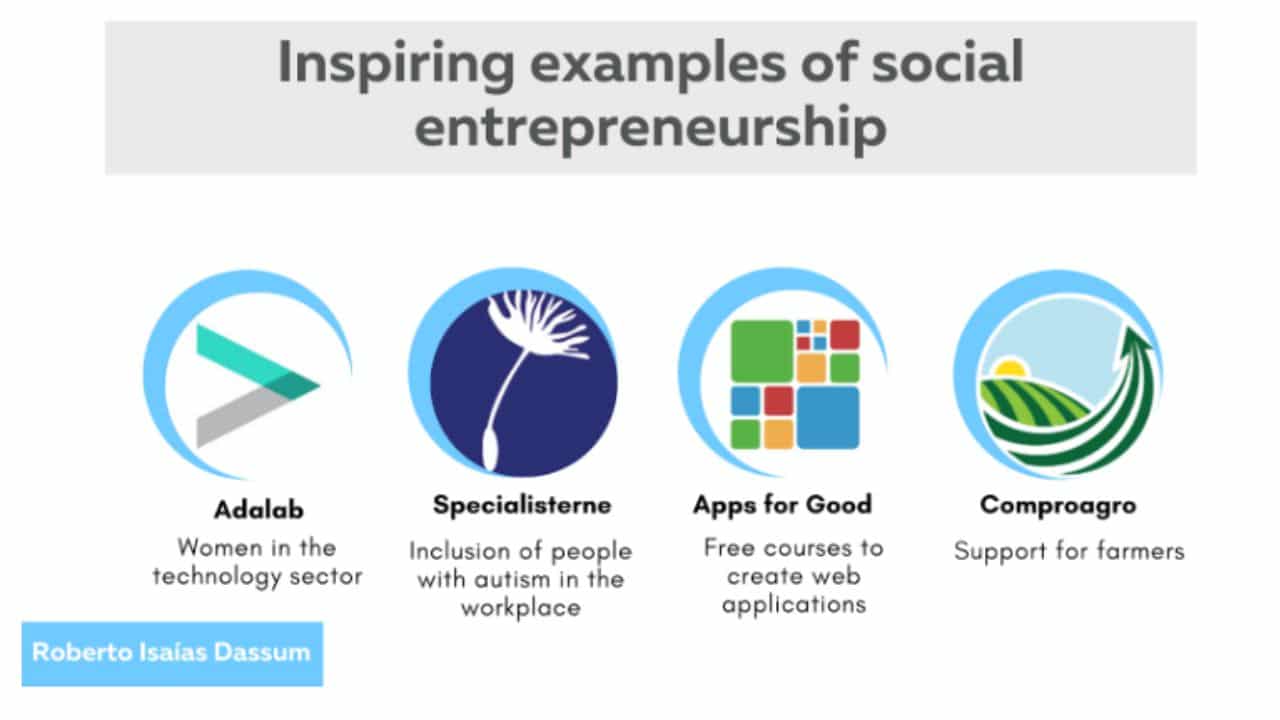Learn about the importance of social entrepreneurship from the innovative and effective vision of philanthropist Roberto Isaias.
Understanding and supporting these initiatives can amplify our efforts towards meaningful change.
Together with social innovation they seek to address the root causes of social problems.
The nature of social entrepreneurship
Social entrepreneurship is defined as the process of recognizing and purposefully pursuing opportunities to improve social and environmental well-being .
This is through the creation of new enterprises or initiatives within existing organizations.
In essence, social entrepreneurs seek to solve societal problems to generate substantial changes and improvements in the community.
These enterprises operate in the marketplace like any other, but their main objective is social impact, putting collective well-being before personal profit.
It can manifest itself in various sectors, including health, education and sustainability.
It requires a unique combination of passion, perseverance and entrepreneurial skills to manage both commercial and social challenges.
Characteristics of a social entrepreneur
For Roberto Isaias, they are distinguished by several key qualities that facilitate their success in such a challenging and rewarding field.
First, they possess a strong passion for social change; that is, their primary motivation is to make a meaningful difference in the world, rather than mere financial gain.
Resilience is another crucial characteristic, as they face numerous challenges, from financial constraints to bureaucratic barriers.
They also possess leadership and management skills, as they must inspire teams, manage resources efficiently and maintain the sustainability of their projects.
In addition, social entrepreneurs must be strategic, knowing when and how to scale their impacts.
Inspiring examples of social entrepreneurship
Companies such as Tom’s Shoes and Warby Parker have demonstrated how one-for-one models can benefit societies while building a profitable enterprise.
Their success shows the power of the social business model.
Impact of social entrepreneurship
Impact extends beyond solving specific social problems.
It transforms communities, drives innovation and promotes sustainable economic change.
Through business models that integrate social objectives with sustainability strategies, entrepreneurs achieve lasting and significant effects both locally and globally.
One of the key areas where it has shown remarkable impact is in the quality of life of underserved populations.
Many focus on social inclusion or access to essential services such as education, health, clean water and renewable energy.
Economically, encouraging the circulation of capital within regions that have traditionally been marginalized.
Challenges for entrepreneurs
Social entrepreneurs face a unique set of challenges that can complicate the execution and sustainability of their initiatives.
One of the biggest hurdles is funding.
Unlike traditional startups, social ventures must convince investors of the value of their social impacts.
This requires persuasion skills and the ability to communicate the intrinsic and long-term value of their projects.
Another important challenge is the balance between social mission and commercial viability.
Social entrepreneurs must navigate the fine line between maintaining their focus on the social mission and ensuring that their enterprise is financially viable.
The role of the philanthropist
It is multifaceted and vital to foster and sustain initiatives that seek to solve social problems in innovative ways.
A philanthropist not only provides the capital necessary to start and sustain these ventures.
They also offer a network of contacts, mentoring and strategic support that is crucial to their success.
One of the main contributions of philanthropists in this field is seed capital.
Networking is also an essential component of philanthropic support.
Promotion of supportive policies
Advocating policies that support social entrepreneurship is essential.
This includes tax incentives, access to financing and training programs.
Policies should encourage innovators to adopt entrepreneurial approaches to solving social problems.
Conclusions
Roberto Isaías shows us how supporting social entrepreneurship can amplify our efforts towards meaningful change.
From the text we can conclude the following:
- Social entrepreneurship fuses innovation and social engagement to address global problems in a sustainable way;
- must meticulously balance mission and profitability to ensure the sustainability of their projects;
- Measuring impact is essential to validate the effectiveness of initiatives and attract continued investment and support;
- overcoming legal barriers is key to the expansion and long-term success of social enterprises;
- Resilience and adaptability are crucial characteristics for entrepreneurs seeking to make a difference.



































